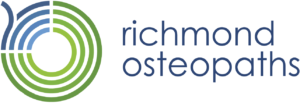Movement is the key to optimal health and well-being. It is evolutionary.
Our bodies are naturally designed to be active and dynamic, however the tendency in this modern age is to neglect this and remain relatively sedentary – often for longer periods of time than we move about.
And when we DO move around and exercise, our bodies cannot cope as they have mal-adapted to the sedentary lifestyles we lead: often leaving us with pain and injuries.
These injuries can often be linked to the types of exercises that we conduct.
Traditional strength training, weightlifting and resistance training protocols tend to focus on the principles of isolating and working specific muscles.
Lifting weights to increase individual muscle strength and tone may result in an increased risk of injury, as this only conditions us to conduct very specific movements that are not normal in everyday life. This can result in weakness and instability in other directions of movement.
If you find that this sounds familiar, whilst exercising, try to incorporate natural movement patterns to work entire groups of muscles in patterns that are reproducible with normal daily activities. These are also called functional exercises and primal movements.
They include:
·Squatting
·Lunging
·Pushing (e.g. push-ups, bench press and shoulder press)
·Pulling (e.g. rowing and pull-ups)
·Twisting (e.g. standing oblique twists – being very careful not to cause or exacerbate any back pain conditions)
·Bending (e.g. Deadlifting)
·Gait (Walking/running)
Guidance on correct technique is essential to prevent any injury. Contact me at Richmond Osteopaths for more specific advice.
Suraj – 07973 346 371
